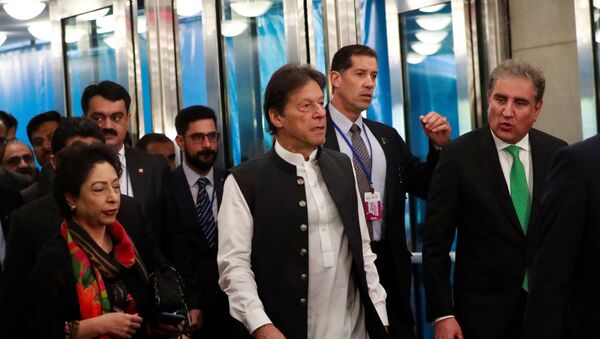In a veiled threat, Khan said India is involved in a conflict with a nuclear power (Pakistan) and if the Kashmir issue is not resolved then "what will be the consequences".
"Don't think that India is a billion-people market, India is having a conflict with nuclear power and if Kashmir issue is not resolved then what will be the consequences. What'll happen to your billion dollar investment?" Khan told the press on the sidelines of the UN meeting in New York.
The veiled threat came against the backdrop of India's attempt to attract foreign investment to the country.
On Wednesday, Indian Prime Minister Narendra Modi chaired an exclusive roundtable at New York, which included 42 global captains of industry from 20 sectors. The participating companies’ combined net worth is $16.4 trillion, including $50 billion invested in India alone.
Khan seemed upset at the countries gathered in New York for the 74th UN General Assembly not favouring Pakistan in the ongoing Kashmir dispute. He had hoped they would raise the issue of the Indian parliament’s decision to eliminate Kashmir's quasi-autonomous status.
Khan blamed the world community for being biased towards India because of its economic stature and global prominence.
“I know why the response is lukewarm. I know why Mr. Modi is not pushed at the moment. People look upon India, a market of 1.2 billion people," Khan said on Wednesday.
Tensions between the two nuclear-armed nations escalated after India carried out an aerial strike in Balakot, an area inside Pakistan to destroy alleged terrorist facilities operated by Jaish-e-Mohammad (JeM) on 26 February.
The tension resurfaced in the first week of the August after the Indian parliament scrapped Jammu and Kashmir's seven-decades-old special quasi-autonomous status.
Reacting to India's move on Kashmir, Pakistan downgraded diplomatic ties with India and expelled the Indian high commissioner. Islamabad also suspended trade and communications with New Delhi and mounted a diplomatic offensive.




